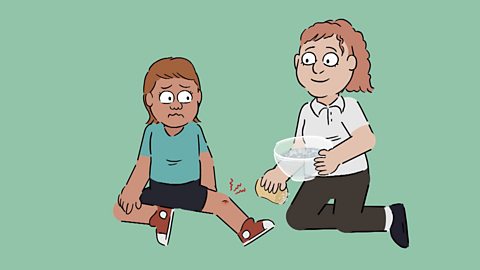Dr Emeka:
Hey, I’m Dr Emeka and this is Dr Emeka’s Essential First Aid.
Just to warn you! This film contains animations of blood and bleeding.
A break or crack in a bone is called a fracture. But how do we know if someone has a fracture and what do we do if they do?
A fracture might be a closed wound where the break is under the skin, or an open wound where the bone has gone through the skin.If you come across someone with a closed fracture, which is under the skin, it isn’t always obvious; but it is important to get medical help as it might have caused internal bleeding.
The signs to look out for are: pain, swelling, any kind of deformity.
An open fracture is usually more obvious - cover the wound with a sterile dressing or clean cloth. If you can, apply pressure around the wound.
That’s the time to call 999 or 112 for help.
For all fractures, keep the casualty as still as possible unless you need to move them from immediate danger. We say stabilise or immobilise the fracture.
Support the injured area as best you can and then stabilise and secure it. Any movement might cause further damage as well as more pain. Use cushions, clothes, or if possible, a sling. If it is a leg injury, immobilise it by securing it to the uninjured leg with a triangular bandage.
Don’t try to move or realign the bone, that’s for medical professionals, like me.
Keep calm and keep the victim in a comfortable position until help arrives!
So remember:
Pad and support the injured area
Use a sling or a triangular bandage to keep it secure
Cover any wounds
Call 999 or 112
Video summary
In this short film Dr Emeka explains to how to manage a broken or suspected broken bone.
With the help of animation, he begins by establishing whether the bone has been broken, before going through the steps of securing and supporting the injury.
This short film is from the 91Čȱ¬ Teach series 'Dr Emeka’s Essential First Aid'.
Teacher Notes
This short film could be used to explain what a broken bone is, how to use an ice pack (or substitute) to relieve pain, and why it is important to keep the casualty still and supported until help arrives (preventing any further damage).
Students could explore the complications that might occur if a closed fracture causes internal bleeding, and what internal bleeding is.
Students could also think through what other signs and symptoms of a fractured bone could be, using some of their senses - what it might sound like, what it might feel like, what it might look like.
Students could learn about how bones develop and change as we grow older and how this affects how they might break.
Activities
Students could practise tying a sling.
While learning about how to support limbs that could be broken, in groups, pupils could be given a limited number of materials and be challenged to build a support structure to hold a certain weight or object.
In pairs, students could discuss the possible causes of fractures and then share their ideas with the class.
Other subject areas
- In science students could study the human skeleton and learn about the composition and purpose of our bones.
This short film touches on elements of PSHE first aid as introduced to the curriculum in England from September 2020 for Key Stage 3.
While not on the curriculum specifically, it could also be used in Wales and Northern Ireland at Key Stage 3 and in Scotland at 3rd and 4th level.
How to make a call to emergency services. video
A short film teaching pupils how to recognise an emergency and how to make a call to emergency services.
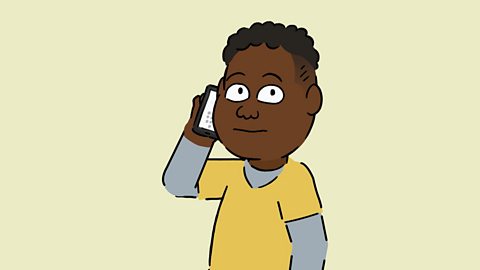
Burns and scalds. video
Dr Emeka gives an introduction to dealing with the types of burns and scalds that can occur in domestic settings.
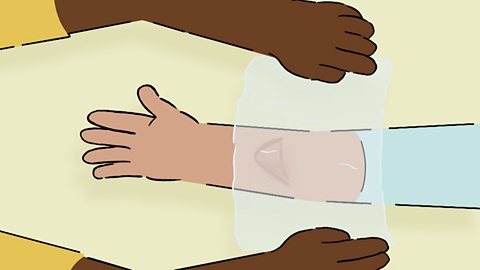
Choking. video
In this short film Dr Emeka gives an introduction for pupils on how to help someone who is choking.
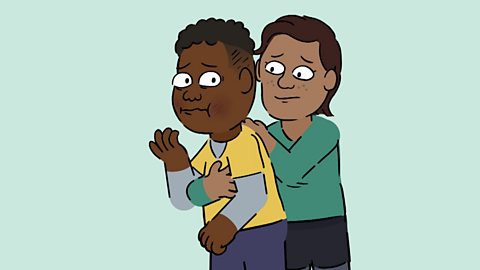
Bleeding and shock. video
Dr Emeka explains how to treat bleeding wounds, what shock is and what to do if someone goes into shock.
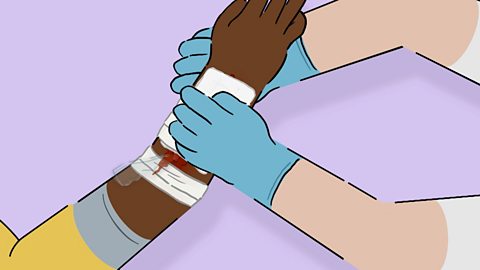
Head injuries. video
In this short film Dr Emeka explains how to tell if a head injury is minor or severe, and what to do in each situation.
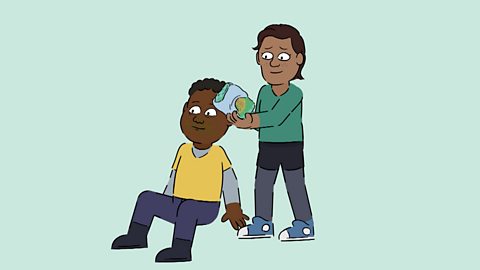
How to administer CPR. video
In this short film, Dr Emeka introduces the process for administering CPR and how to use an AED (automated external defibrillator).
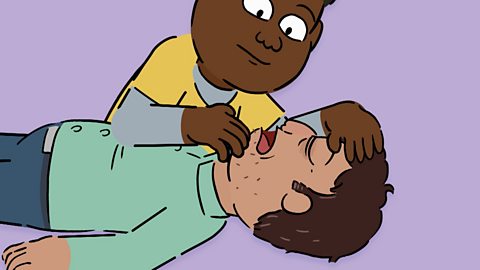
How to administer CPR during the Covid-19 pandemic. video
In this short film Dr Emeka introduces the process for administering CPR and how to use an AED (automated external defibrillator), with specific tips for staying safe during the Covid-19 pandemic.
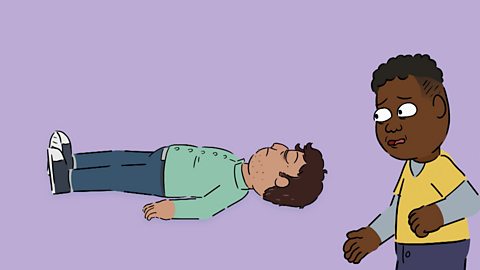
Bites and stings. video
In this short film Dr Emeka teaches pupils how to deal with bites and stings on themselves, or those around them.
